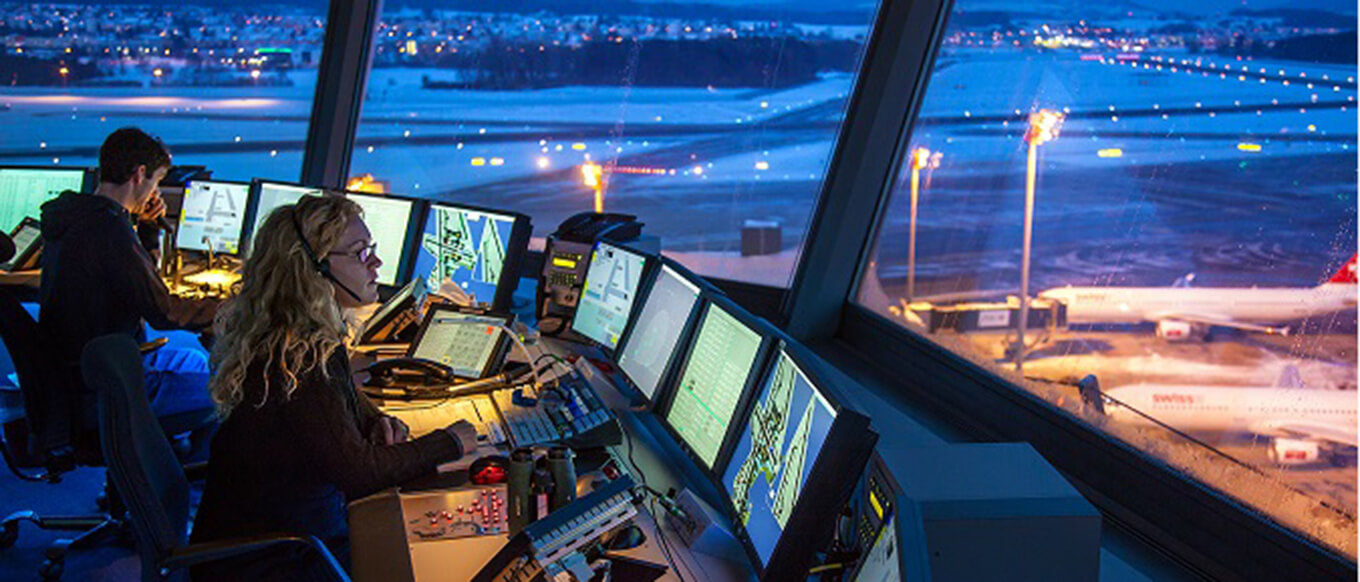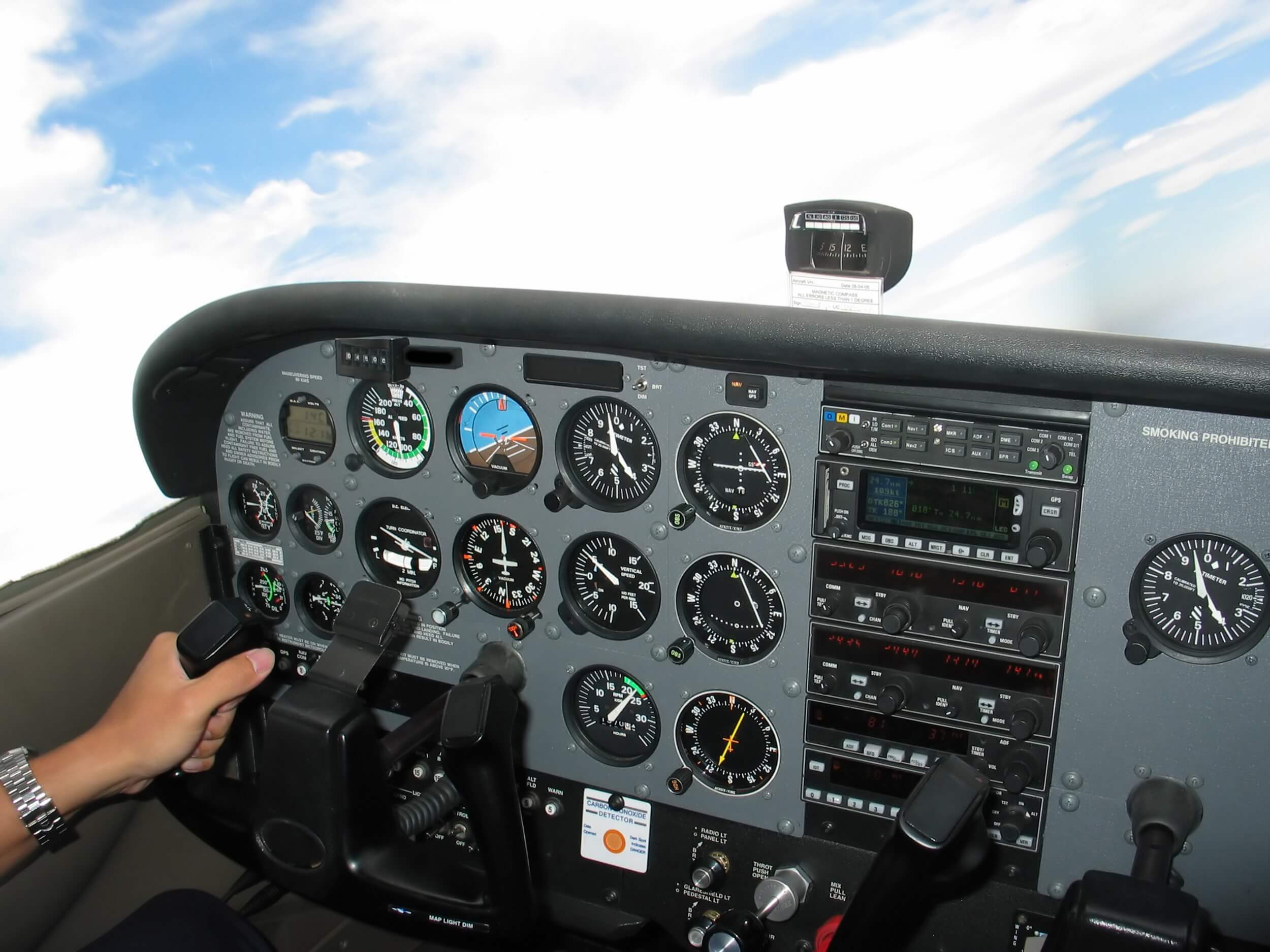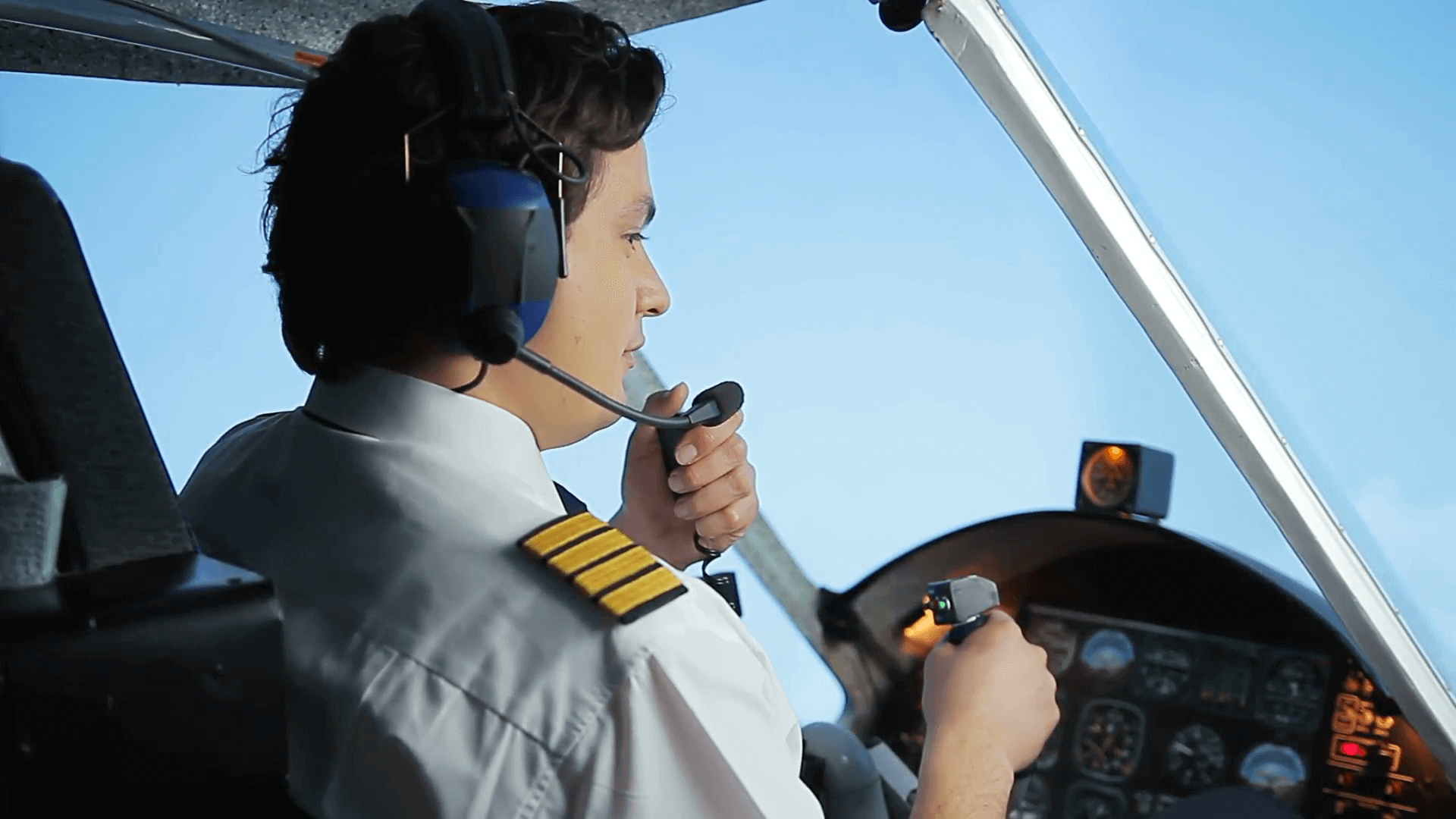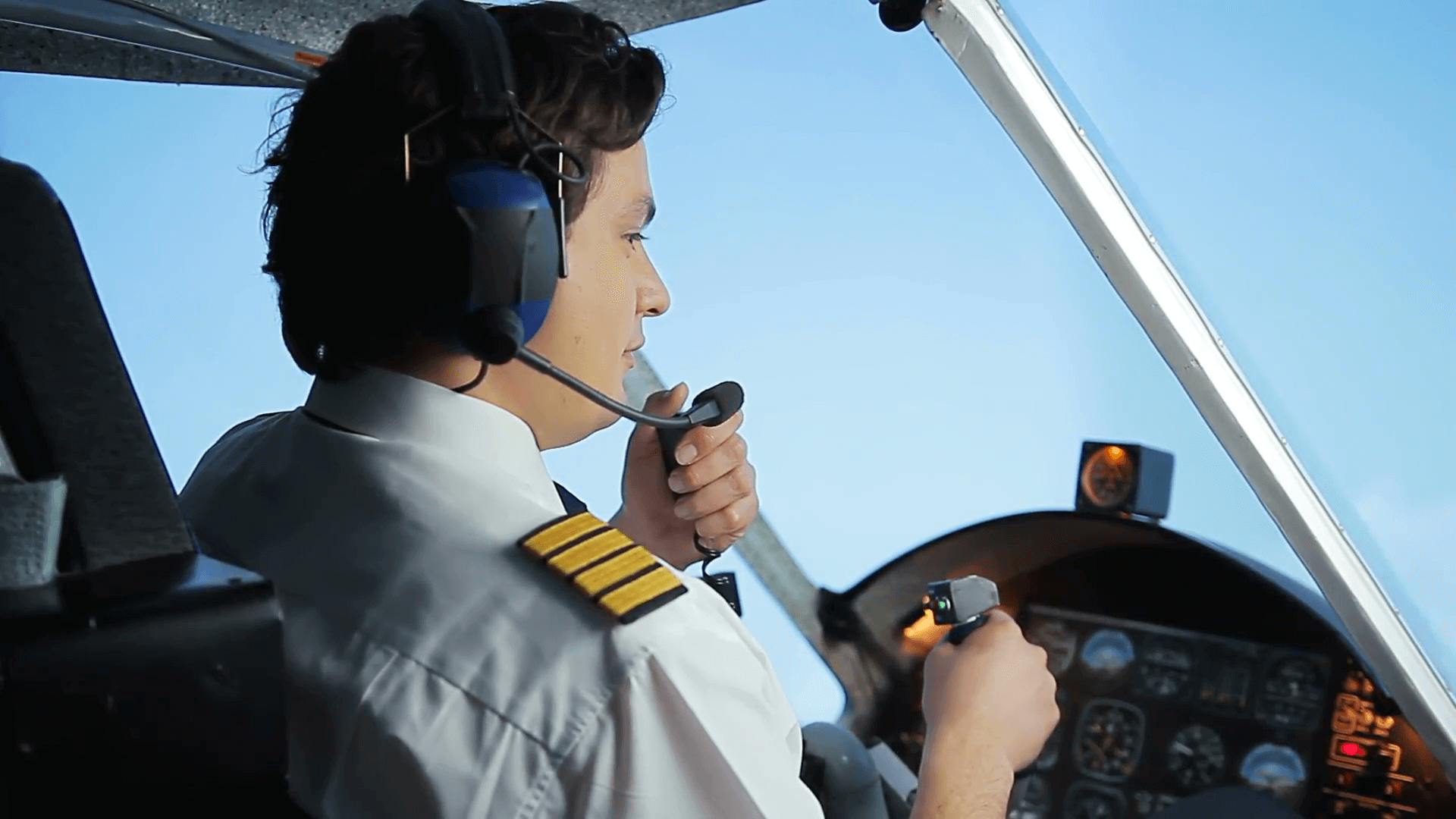FLY LEVEL started to train Air Traffic Controllers in 2012, by launching the first initial air traffic controller training course. From that moment, we became the first private Approved Training Organisation for Air Traffic Controllers in Romania.
What is an Air Traffic Controller?
Air traffic controllers are people that are trained to coordinate the safe, efficient and orderly movement of aircraft on the ground, at airports and within an assigned airspace. Air traffic controllers must be able to effectively perform different duties for different airplanes at the same time, and they must be able to do so without compromising the quality of their work. Those who become air traffic controllers have excellent decision-making, problem solving, communication, and multi-tasking skills. They are typically individuals who are able to endure large amounts of stress, and they are able to concentrate when there are a lot of things happening around them.
Initial ATC Training Courses
The objective of initial training is to prepare an ab initio for training at an air traffic control (ATC) unit. Initial training leads to the issue of a student air traffic controller licence or to the issue of an additional rating and, if applicable, rating endorsement.
After successfully completing the Initial Air Traffic Controller Training (Basic Course + at least 1(one) Rating Course) the candidates can apply for the Student Air Traffic Controller License. ATCO licences are issued by the Civil Aviation Authorities following completion of the appropriate approved initial training courses, examinations and assessments. Holders of the Student Air Traffic Controller Licenses can apply to appropriate Air Navigation Services Providers as Air Traffic Controllers.
Compliance with regulations
-
The Initial ATC training courses provided by Fly Level are compliant with Commission Regulation (EU) 2015/340 and EUROCONTROL Common Core Content Edition 2.0.
-
The courses are approved by the Romanian Civil Aeronautical Authority and also by the Civil Aviation Authority of the Republic of Moldova.
-
Fly Level is certified as a Training Organization according to European Regulations by the Romanian CAA and by the CAA of the Republic of Moldova in respect with ICAO standards.
The ATC initial training provided by FLY LEVEL is made up of:
ATC Basic training course
The Basic ATC course is defined as theoretical and practical training, designed to give trainees a foundation level of knowledge and understanding of the work as an air traffic controller and the complete Air Traffic Management (ATM) system.
Successful completion of this course enables them to progress further onto rating training courses.
Basic Course overview
Theory. During the course trainees will learn: aviation law, air traffic management, aircraft, equipment and systems, human factors, professional environment, meteorology, and navigation.
Simulator training. The Basic Course shall, due to pedagogical and didactical considerations, aim for the integration of the acquired skills in suitable simulation exercises, which should be planned towards the end of the course. Beyond the purpose and nature of practical skills acquisition, the simulation in the Basic Course aims at the integration of several knowledge areas and skills to be performed at the same time. This ability is an important basic prerequisite to progress on to specialised training in the subsequent Rating courses. Demonstration of this ability, in simulation exercises is a means of assessment of the successful completion of the Basic Course.
FLY LEVEL uses ARTMACS® – Tower and Radar Air Traffic Control simulator, produced by Canadian Data Software. ARTMACS® can simulate different stages of flight control as: area, approach, tower and ground control. For tower and ground, ARTMACS® provides a full 3D module allowing a realistic view of the airport.
Course duration: 3 months
Course scheduling: 6h/day, 5 days/week
Prerequisites
Candidates for the ATC Basic course shall comply with the following preconditions for admission, in addition to any client company requirements:
-
To be at least 18 years old (17 years old if applicable), but however, the applicants for the issue of a student air traffic controller licence shall be at least 18 years old;
-
To have been graduated pre-university education (certificate / diploma or equivalent is required);
-
To hold a valid medical certificate for air traffic controllers;
-
Proficiency in English language for course attendance (demonstrating English language proficiency at leas at operational level (level 4) is an advantage).
ATC Rating training courses
The ATC Rating courses are designed to impart knowledge and skills related to a specific rating and, if applicable, to rating endorsement.
The following ATC Rating courses are conducted within Fly Level:
- Aerodrome Control Instrument Rating for Tower – ADI (TWR)
- Approach Control Procedural Rating – APP
- Approach Control Surveillance Rating – APS
- Area Control Surveillance Rating – ACS
- Area Control Procedural Rating – ACP
Rating Courses overview
The Rating courses contain appropriate theoretical and practical training to acquire the skills required for the grant of student licence and, if applicable, to rating endorsement.
Theory. Theoretical events will be followed by practical applications in a classroom and in a simulator. The theoretical part of the course consists of new subjects as well as reviews and enhancements of subjects from the Basic ATC course related the rating being taught.
Simulator training. The simulator training is conducted in the simulator aimed to strengthen the knowledge and skills to exert the aimed type of control. Simulation phases evolve from simple to more complex exercises.
FLY LEVEL uses ARTMACS® – Tower and Radar Air Traffic Control simulator, produced by Canadian Data Software. ARTMACS® can simulate different stages of flight control as: area, approach, tower and ground control. For tower and ground, ARTMACS® provides a full 3D module allowing a realistic view of the airport.
Training duration:
The average length of a Rating course is 2 months.
Course scheduling: 6h/day, 5 days/week
Prerequisites
A successful completion of Fly Level’s Basic ATC module or equivalent.
Language Proficiency
International Civil Aviation Organisation (ICAO) has established minimum level of English proficiency level that Air Traffic Controllers must meet.
Prior to applying for the Student Air Traffic Controller Licence the applicant must have demonstrated English language proficiency to at least level 4 standard prescribed by the International Civil Aviation Organisation (ICAO).
OJTI / STDI Courses
Compliance with regulations
- The OJTI/STDI courses provided by Fly Level are compliant with Commission Regulation (EU) 2015/340.
- The courses are approved by the Romanian Civil Aeronautical Authority.
PRACTICAL INSTRUCTIONAL SKILLS COURSE FOR OJTI / STDI
This Training Programme for On-the-Job Training Instructors (OJTI) and Synthetic Training Device Instructors (STDI) provides theoretical knowledge and practical skills for ATC controllers who will undertake OJTI/STDI duties.
After completing the course, future On-the-Job Training and Synthetic Training Device Instructors will have the skills necessary to help student controllers and trainees to progress toward a successful conclusion of their operational or simulator training.
Course overview
The Practical Instructional Skills for OJTI / STDI Course contains theory lectures and discussions followed by simulator practice.
Continuous assessment is applied. The course participants will show their ability to work according to the training structure in the practical exercises and show a positive and open minded attitude towards student training.
Course duration: 7 (seven) days.
Prerequisites
Applicants must hold or have held an air traffic controller licence, with at least two years of operational experience.
PRACTICAL INSTRUCTIONAL SKILLS REFRESHER COURSE FOR OJTI / STDI
The aim of the course is to update and reinforce the techniques and knowledge acquired on the Practical Instructional Skills for OJTI/STDI course.
After completing the course, participants with previous air traffic controller OJTI/STDI experience will have undertaken refresher training that reinforces the knowledge and techniques needed by a competent OJTI/STDI.
Course overview
The Practical Instructional Skills for OJTI / STDI Refresher Course contains theory lectures and discussions followed by simulator practice.
Continuous assessment is applied. The course participants will show their ability to work according to the training structure in the practical exercises and show a positive and open minded attitude towards student training.
Course duration: 4 (four) days.
Prerequisites
The course is aimed at already qualified OJTI/STDI personnel. Participants must have successfully completed an OJTI/STDI course at Fly Level or other recognised training organisation. According to EU Regulation No 340/2015 OJTI/STDI Refresher training should be taken every three years to maintain OJTI endorsement.
Assessor Courses
This course deals with the processes used within a formal competence scheme to evaluate the competence of air traffic controllers for the first operational competency and for continuing competence.
The course supports the use of both practical and oral assessment as tools to determine the initial operational competency of a controller and provides participants with the rationale, knowledge, techniques and practical skills needed to undertake the role Competence Assessor.
After completing this regulated course, participants will have been assessed on practical and pedagogical skills of competence assessment and will have an understanding of the current European controller competence regulations and the principles of competence checking. In addition, participants will have an appreciation of competence assessment techniques and ‘best practice’ to prepare them to take on the role of Competence Assessor.
Compliance with regulations
- The Assessor courses provided by Fly Level are compliant with Commission Regulation (EU) 2015/340.
- The courses are approved by the Romanian Civil Aeronautical Authority.
Course overview
The course contains both lectures and practical exercises.
Course duration: 7 (seven) days.
Prerequisites
Applicants must hold or have held an air traffic controller licence.
According to the Commission Regulation (EU) No 2015/340 Assessor training should be taken every three years to maintain an Assessor endorsement.
Assessor Refresher Courses
This course provides experienced air traffic controllers who are competency assessors with refresher training that highlights and reinforces the knowledge and skills required to conduct effective assessments.
Emphasis is placed on retaining skills in assessment tools and techniques and creating awareness of the regulatory requirement. It also gives an understanding of the beneficial impact of the competence assessment on safety as well as on the development of the unit and the individual.
After completing the course, participants with previous controller competency assessment experience will have undertaken refresher training that reinforces the knowledge and skills in assessment techniques needed by a competency assessor.
Course overview
The course contains both lectures and practical exercises.
Course duration: 4 (four) days.
Training Location
The ATC training courses shall be conducted in Bucharest and Strejnicu (Ploiesti) – Romania.
Additionally, we are able to deliver training and services at client sites. Partnering with NOTAM Inc. we can deliver training at Miami, FL, USA.
Contact Information
If you need any further information, please do not hesitate to contact us:
Otopeni, Romania: email: office@flylevel.aero / telephone: +40 310 699 966
Chisinau, Republic of Moldova: e-mail: info@flylevel.aero / mobile: + 373 784 11 811 / + 40 751 559 999.







